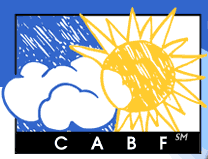|
Monday's Bipolar Abstract: Transcranial Magnetic Stimulation in the Treatment of Major Depressive Disorder: A Comprehensive Summary of Safety Experience From Acute Exposure, Extended Exposure, and During Reintroduction Treatment Philip G. Janicak, John P. O'Reardon, Shirlene M. Sampson, Mustafa M. Husain, Sarah H. Lisanby, Jeffrey T. Rado, Karen L. Heart, and Mark A. Demitrack From the Department of Psychiatry, Rush University Medical Center, Chicago, Ill. (Drs. Janicak and Rado); the Department of Psychiatry, University of Pennsylvania, Philadelphia (Dr. O'Reardon); Mayo Clinic College of Medicine, Rochester, Minn. (Dr. Sampson); University of Texas-Southwestern Medical Center, Dallas (Dr. Husain); New York State Psychiatric Institute, New York (Dr. Lisanby); and Neuronetics, Inc., Malvern, Pa. (Ms. Heart and Dr. Demitrack)
Objective: Transcranial
magnetic stimulation (TMS) has demonstrated efficacy in the treatment of
major depressive disorder; however, prior studies have provided only
partial safety information. We examined the acute efficacy of TMS in a
randomized sham-controlled trial, under open-label conditions, and its
durability of benefit.
Conclusions: TMS was associated with a low incidence
of adverse events that were mild to moderate in intensity and
demonstrated a largely predictable time course of resolution. TMS may
offer clinicians a novel, well-tolerated alternative for the treatment
of major depressive disorder that can be safely administered in an
outpatient setting.
|
Other bipolar Links: Juvenile Bipolar Research Foundation
Child and Adolescent Bipolar Foundation
Depression and Bipolar Support Alliance
NIMH Child and Adolescent Mental Health
International Society for Bipolar Disorders
|




